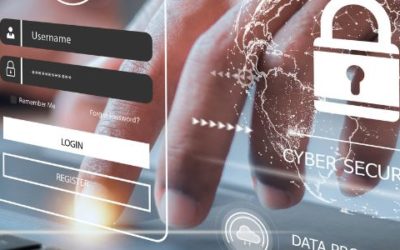The Effective Security Measures You Need to Know for Bolstering Your Microsoft 365 Data Protection
The Microsoft 365 suite of apps is one of the most widely used and productive office collaboration tools available for consumer and business users. However, it can also expose your machines and sensitive data to significant security weaknesses unless you tweak it with some custom adjustments.
Microsoft 365 offers excellent communication, remote work, and document sharing functionality allowing your team to ramp up productive projects and office work at scale. As expected, 365’s standard security is quite robust since Microsoft has long experience with business software packages.
Your Business is Still Vulnerable
Despite all this, you can still find yourself subject to cyberattacks in the form of malware downloads, unauthorized access, data theft, and ransomware, among other things, if you’re not careful about your Microsoft 365 settings. Any of these threats are individually enough to cause your business great suffering and financial loss. Not to include severely damaging your reputation if customers find out their information has also been leaked or compromised.
While it’s impossible to fully guarantee perfect digital security with any software or hardware platform, you can take several steps to make your digital operations more secure. The following 11 tips will teach you how to beef up your Microsoft 365 security and make a significant difference for you and your customers’ data integrity.
How to increase data security on Microsoft 365
- Train your employees well
- Instill Robust Password Practices
- Use Multi-factor Authentication
- Avoid Public Calendar Sharing
- Apply Session Timeouts
- Make Full Use of ATP
- Lock down your Mobile Access Protocols
- Keep your Staff Notified Through Policy Alerts
- Enable Role-based Access Controls
- Encrypt Emails and Data
- Obtain Expert, Professional Assistance
 Train your employees well
Train your employees well
The security steps and tips we’re about to cover will offer excellent additional security for your 365 suite and your business data. However, they’re only halfway useful if your staff doesn’t apply them rigorously as well. Don’t make the mistake of leaving your employees out of the security loop by failing to teach them proper security procedures and their importance.
Human error is the single biggest cause of digital security breaches in organizations today. You can minimize this risk by having your staff internalize solid security operations. As you effectively apply the following Microsoft 365 security measures, remember to teach these practices across the board as well. 365 is a collaborative suite of software tools, and its security settings should follow the same approach.
 Instill Robust Password Practices
Instill Robust Password Practices
The most basic step to good account security for any software suite or platform is a robust culture of using strong passwords. Which is why it is essential to teach your staff the difference between weak and secure passwords. It’s not good enough to tell your employees that a strong password must be lengthy. To ensure your employees know the qualities of a good password, you should firmly demonstrate what good passwords look like and ensure that all your team members apply them.
Also, make sure your staff handles their passwords carefully. This means not storing them in an exposed digital format or writing them down anywhere where they are easily found. Ideally, to offer your business the best form of protection, we recommend using a password manager. Password managers are great tools to use because they store all your usernames and passwords in one secure vault. Password management systems are also great for added security due to their use of encryption algorithms.
 Use Multi-factor Authentication
Use Multi-factor Authentication
Because passwords alone aren’t enough to prevent a security breach, a robust security measure you can apply to your business’s Microsoft 365 account is multi-factor authentication (MFA). MFA allows your staff to sign into their 365 accounts through a system of one-time passphrases or other factors such as email and text message verifications. This additional layer of security helps make their individual account access much more secure.
Enabling multi-factor authentication (MFA) should also be followed by activating Security Defaults. This Microsoft feature enforces MFA for all administrator accounts, so your staff is forced to use these security steps as a default step for account access. We recommend applying multi-factor authentication not just to all admin accounts but to all 365 accounts in general.
 Avoid Public Calendar Sharing
Avoid Public Calendar Sharing
Having calendar sharing enabled lets your employees collaborate better and organize projects more closely through synchronizing schedules with their co-workers. However, there is a dangerous side to this because there is a potential to expose operational information to prying eyes. For this reason, if your team is using calendar sharing, you should make sure it’s kept as private as possible. This will help prevent hackers from obtaining important details such as pending client account settlements or your IT security staff’s work schedules and projects.
 Apply Session Timeouts
Apply Session Timeouts
The forgetful act of leaving an account session open (even after you’re done working) can cause a security breach on unprotected machines. To avoid this, make sure your staff is extremely conscious about logging out of their mobile or desktop accounts whenever they finish their work.
For an added security step, enable automatic session timeouts for your 365 account and other internal networks, so even when staff members become forgetful, your system will automatically log them out after a certain period of inactivity.
 Make Full Use of ATP
Make Full Use of ATP
ATP stands for Advanced Threat Protection, and it’s an additional Microsoft security layer that you should make use of. With ATP, you can protect against human error that leaves your systems open to threats while also creating additional protection beyond that offered by your computer firewalls and anti-virus software.
ATP lets you receive notifications about potential threats, attacks, attack vectors, and severity and potential phishing attacks. ATP also allows you to have constantly updated, near real-time databases of attempted attacks against your Microsoft accounts that you can keep for reference in case of future breach attempts. ATP is also handy due to its reliance on an enormous Microsoft-maintained database of suspicious or dangerous sites that your team should avoid due to malware threats.
 Lock down your Mobile Access Protocols
Lock down your Mobile Access Protocols
In today’s digital landscape, your team of employees is almost certainly going to access their work email, documents, databases, and contacts or calendars through their mobile devices. Especially if your staff members are traveling or working remotely. Although mobile account access is usually unavoidable, it can be a significant security hole. To minimize its risk, make sure devices used by your staff for work-related Microsoft 365 access are firmly secured in advance.
You can do this by installing and running Microsoft 365 mobile management security options that let you control who can access what and when of your company data through staff mobile devices. These security features also allow you to remotely wipe vital 365-related information from mobile devices that get lost or stolen.
 Keep your Staff Notified Through Policy Alerts
Keep your Staff Notified Through Policy Alerts
No matter how well you instill security protocols in your staff, it’s possible for them to forget a crucial step here and there or to miss out on updates to internal security procedures. You can keep this to a minimum by making use of Policy Alerts. Microsoft 365 lets you establish notifications and compliance updates that you can use to send group messages about security best practices, newly discovered threats, and specific warnings as they emerge for your team.
 Enable Role-based Access Controls
Enable Role-based Access Controls
Certain employees’ degree of access to specific parts of your Microsoft 365 suite can be molded for maximum security. This also applies to all your crucial business data access systems and accounts. In other words, establish clear need-to-use access parameters for users and staff based on audited necessity. Administrative staff will have more access than newer or low-trust employees. Ideally, access should be kept as carefully limited as possible for any crucially sensitive parts of your company’s data.
 Encrypt Emails and Data
Encrypt Emails and Data
Microsoft 365 lets you use message, email, and general encryption in highly flexible ways. You can make use of this feature for the sake of last-resort security. Having robust across-the-board encryption enabled on all accounts, emails, and messages help ensure that even if hackers breach your critical information, they can’t read much of it. This is a powerful basic security benefit of encryption.
 Obtain Expert, Professional Assistance
Obtain Expert, Professional Assistance
Correctly and fully implementing a robust sequence of Microsoft 365 security protocols not only for yourself but also for your whole business team can be a complex, daunting process that might at some point require a lot of audit and review work. You don’t need to handle it on your own. Professional support by dedicated IT security and computer network experts is just a click away. Contact Network Computer Pros for an assessment of your business IT security needs.
How to increase data security on Microsoft 365
- Train your employees well
- Instill Robust Password Practices
- Use Multi-factor Authentication
- Avoid Public Calendar Sharing
- Apply Session Timeouts
- Make Full Use of ATP
- Lock down your Mobile Access Protocols
- Keep your Staff Notified Through Policy Alerts
- Enable Role-based Access Controls
- Encrypt Emails and Data
- Obtain Expert, Professional Assistance
Increase data security today
You might also like
The 5 Symptoms of Bad I.T. Plaguing Your Business
Welcome to the Network Computer Pros technology clinic, where we diagnose and treat the I.T....
IT Billing Model: 6 Major Benefits of Fixed-Rate Services
Managed IT Services offer significant advantages over traditional hourly billing for businesses in...
Latest LastPass Scam: Everything you should know
Understanding and Protecting Yourself from the Latest LastPass Scam After a sophisticated...



